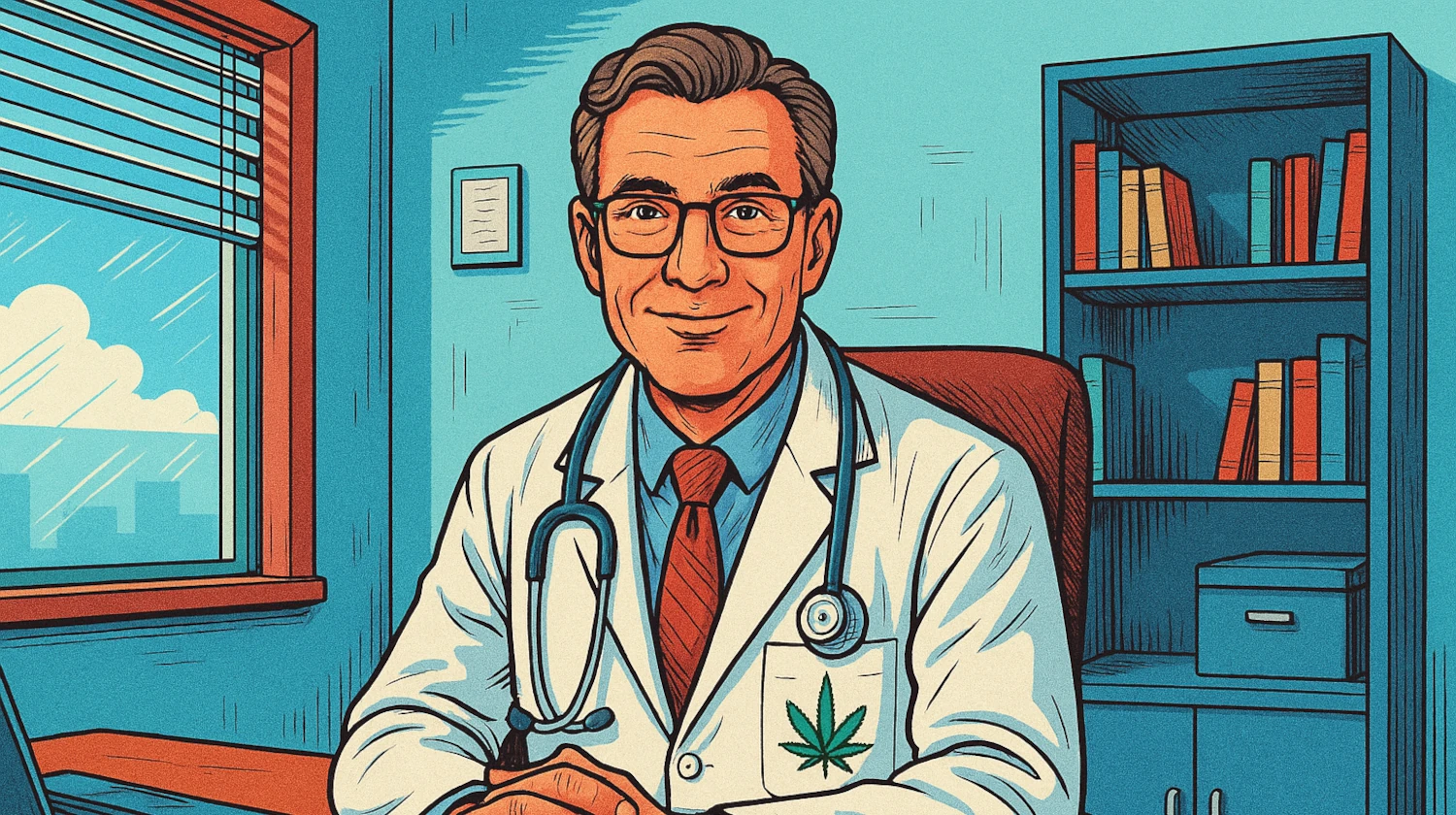For some veterans, the most challenging part of their service begins once it ends.
For a former Marine, life after service meant confronting the weight of post-traumatic stress disorder (PTSD). The anxiety, the sleeplessness, the hypervigilance, all compounded into a constant, invisible war within themselves.
Like many others, this veteran turned to traditional treatment options, hoping for relief. Instead, he was left feeling foggy, disconnected, and exhausted.
“I turned to medical cannabis as a natural alternative to Western medicine,” he explained. “Cannabis helps manage my symptoms in a way that aligns with my well-being.”
What he found was more than just symptom relief. It was a path back to himself.
Discovering Medical Cannabis
Before getting his medical card, the patient had experimented with cannabis to help ease the stress and symptoms tied to PTSD. But without guidance or legal protection, that use felt risky and inconsistent.
What held him back from taking the next step wasn’t a doubt in the potential benefits of cannabis. It was the stigma surrounding it.
“My main concern before getting a medical card was the stigma around cannabis use and how it might be perceived,” he said.
As a Marine veteran, the weight of judgment (from society, peers, even himself) wasn’t easy to shake.
But ultimately, his need for healing took precedence. “I prioritized my well-being and found it to be a more effective and natural alternative," he explained.
For others, learning how medical cannabis may help with PTSD might be the first step toward reclaiming their sense of peace.
Navigating the Transition

Before trying medical cannabis, the patient had been prescribed antidepressants to manage his PTSD symptoms. But the side effects were hard to ignore. “They left me feeling disconnected, fatigued, and unwell,” he said.
Cannabis offered something different. “It helps me manage my PTSD symptoms while maintaining clarity and quality of life,” he explained. With his medical card, he began exploring products that supported his goals rather than dulling his senses.
Finding the right strains for PTSD took some experimentation. He leaned toward sativa strains from Wonderland, which had uplifting effects that helped him stay focused and engaged throughout the day. “I use cannabis daily; once before bed to help with relaxation and sleep, and once post-workout to aid recovery and reduce stress,” he said.
Managing PTSD with Cannabis

Since starting medical cannabis, the patient’s symptoms have become easier to manage. “Cannabis has helped me focus on what truly matters, like my family and personal growth,” he shared. With less anxiety clouding his day, he found it easier to stay grounded and present.
The shift wasn’t just internal. Daily cannabis use helped create space for other healthy habits like yoga, meditation, and consistent workouts. These additions became an important part of his routine.
“I’ve shifted my focus toward a healthier lifestyle,” he said. “It’s helped me manage my symptoms more effectively.”
Even his relationships and routines began to improve. With anxiety and stress more under control, he found himself reconnecting with hobbies, engaging more socially, and sleeping better. “Cannabis has helped me stay focused on my goals by reducing anxiety and improving my ability to manage stress,” he said.
More About Cannabis and PTSD

For many PTSD patients, symptoms like anxiety, insomnia, hypervigilance, and intrusive memories persist long after the event. Conventional treatments don’t always bring relief.
As a result, more patients are exploring medical cannabis as an alternative. PTSD is now a qualifying condition in several legal states, as cannabis may help with certain symptoms.1 Patients report using cannabis to manage stress, improve sleep, and reduce emotional reactivity. Though individual experiences vary, interest in cannabis as a therapeutic option continues to grow.
Early research supports that potential, suggesting that cannabis patients are 2.57 times more likely to no longer meet the criteria for PTSD.2 Studies indicate that cannabis may reduce symptom severity, improve sleep, and help better regulate anxiety and stress responses. One retrospective study even showed that medical cannabis use led to significant improvement in treatment-resistant combat PTSD.
While more clinical trials are needed, both science and patient stories suggest that cannabis for PTSD may offer meaningful support when other approaches fall short.3
Life After Medical Cannabis: A New Normal

Since starting medical cannabis, the patient has noticed a real difference; not just in symptoms, but in how he shows up in his life. “My life has improved significantly,” he said. “I’ve been able to manage stress and anxiety more effectively, sleep better, and stay focused on my personal goals.”
The benefits go beyond symptom relief. He feels more present with loved ones, more connected to his surroundings, and more open to exploring new hobbies.
A shift in mindset made space for a healthier, more active lifestyle, and that change didn’t happen in isolation. “My decision to use medical cannabis came at the recommendation of family, friends, and doctors,” he said. “Their support made me more comfortable with exploring it as a treatment option.”
Now that he’s experienced those benefits firsthand, he doesn’t hesitate to pass it on. “Yes, I would recommend medical cannabis to a friend,” he said. “Especially if they’re struggling with stress, anxiety, pain, or sleep issues.”
For him, and patients like him, cannabis isn’t a cure. It’s a tool. It's a daily support system that’s helped rebuild structure, confidence, and peace. However, his experience isn't universal, and you should always consult with your doctor before using cannabis to address a medical condition.
References
- Nacasch N, Avni C, Toren P. Medical cannabis for treatment-resistant combat PTSD. Frontiers in psychiatry. 2023;13. doi:https://doi.org/10.3389/fpsyt.2022.1014630 ↩︎
- Bonn-Miller MO, Brunstetter M, Simonian A, et al. The Long-Term, Prospective, Therapeutic Impact of Cannabis on Post-Traumatic Stress Disorder. Cannabis Cannabinoid Res. 2022;7(2):214-223. doi:10.1089/can.2020.0056 ↩︎
- Abizaid A, Merali Z, Anisman H. Cannabis: A potential efficacious intervention for PTSD or simply snake oil?. J Psychiatry Neurosci. 2019;44(2):75-78. doi:10.1503/jpn.190021 ↩︎
The information in this article and any included images or charts are for educational purposes only. This information is neither a substitute for, nor does it replace, professional legal advice or medical advice, diagnosis, or treatment. If you have any concerns or questions about laws, regulations, or your health, you should always consult with an attorney, physician or other licensed professional.




